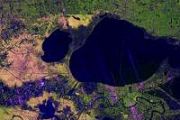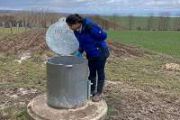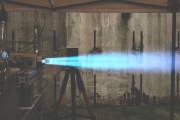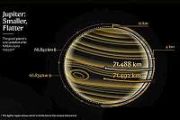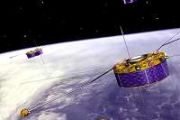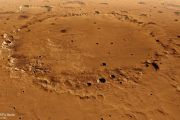
Copernical Team
AI is making spacecraft propulsion more efficient, and could even lead to nuclear-powered rockets
Verifying that you are not a bot
Boeing's troubled capsule won't carry astronauts on next space station flight
Verifying that you are not a bot
1st Starship launch on Space Coast could come mid-2026, Space Force official says
Verifying that you are not a bot
The overview effect: Astronaut perspectives from 25 years in low Earth orbit
Verifying that you are not a bot
Next MetOp Second Generation weather satellite in the spotlight

The MetOp Second Generation-B1 satellite has entered its third and most delicate round of pre-launch testing, marking another step towards strengthening Europe’s weather forecasting capabilities.
Engineers are now putting the satellite through rigorous electromagnetic compatibility tests to ensure that its many electronic systems can operate without interfering with one another once this new weather satellite is in orbit around Earth next year.
Final call to apply for ESA Internships 2026!

The clock is ticking! Applications for the ESA Student Internship Programme 2026 close on 30 November. This is your chance to take your first step into the world of space.
Cool comfort: beating the heat with high-tech clothes
 As global temperatures rise and heatwaves intensify, a new textile innovation co-developed by University of South Australia scientists promises to keep people cooler, drier, and more comfortable in extreme heat.
Partnering with researchers from Zhengzhou University in China, UniSA materials scientist Professor Jun Ma has helped to create a lightweight breathable fabric that reflects 96% of
As global temperatures rise and heatwaves intensify, a new textile innovation co-developed by University of South Australia scientists promises to keep people cooler, drier, and more comfortable in extreme heat.
Partnering with researchers from Zhengzhou University in China, UniSA materials scientist Professor Jun Ma has helped to create a lightweight breathable fabric that reflects 96% of Calcite deposit from southern Nevada cave reveals 580,000 years of climate history
 Climate history recorded in a calcite deposit in a southern Nevada cave indicates that the hot, arid southwestern United States experienced significant shifts in temperature and rainfall over the last 580,000 years.
The findings, just published in the journal Nature Communications, provide new insight into the region's hydroclimate and how it may evolve in the future, said Kathleen Wendt,
Climate history recorded in a calcite deposit in a southern Nevada cave indicates that the hot, arid southwestern United States experienced significant shifts in temperature and rainfall over the last 580,000 years.
The findings, just published in the journal Nature Communications, provide new insight into the region's hydroclimate and how it may evolve in the future, said Kathleen Wendt, Drilling deep to study the oxygenation of Earth
 Some 2.3 to 2.4 billion years ago, Earth underwent a monumental transformation that forever altered the planet's course. Cyanobacteria evolved a new kind of photosynthesis that unleashed tremendous amounts of oxygen into the oceans and atmosphere, setting the stage for life as we know it.
The oxygenation of the planet, known as the "Great Oxygenation Event" or GOE, was undeniably monumenta
Some 2.3 to 2.4 billion years ago, Earth underwent a monumental transformation that forever altered the planet's course. Cyanobacteria evolved a new kind of photosynthesis that unleashed tremendous amounts of oxygen into the oceans and atmosphere, setting the stage for life as we know it.
The oxygenation of the planet, known as the "Great Oxygenation Event" or GOE, was undeniably monumenta Scientists track recent solar flare disruptions in Earth's ionosphere
Verifying that you are not a bot








